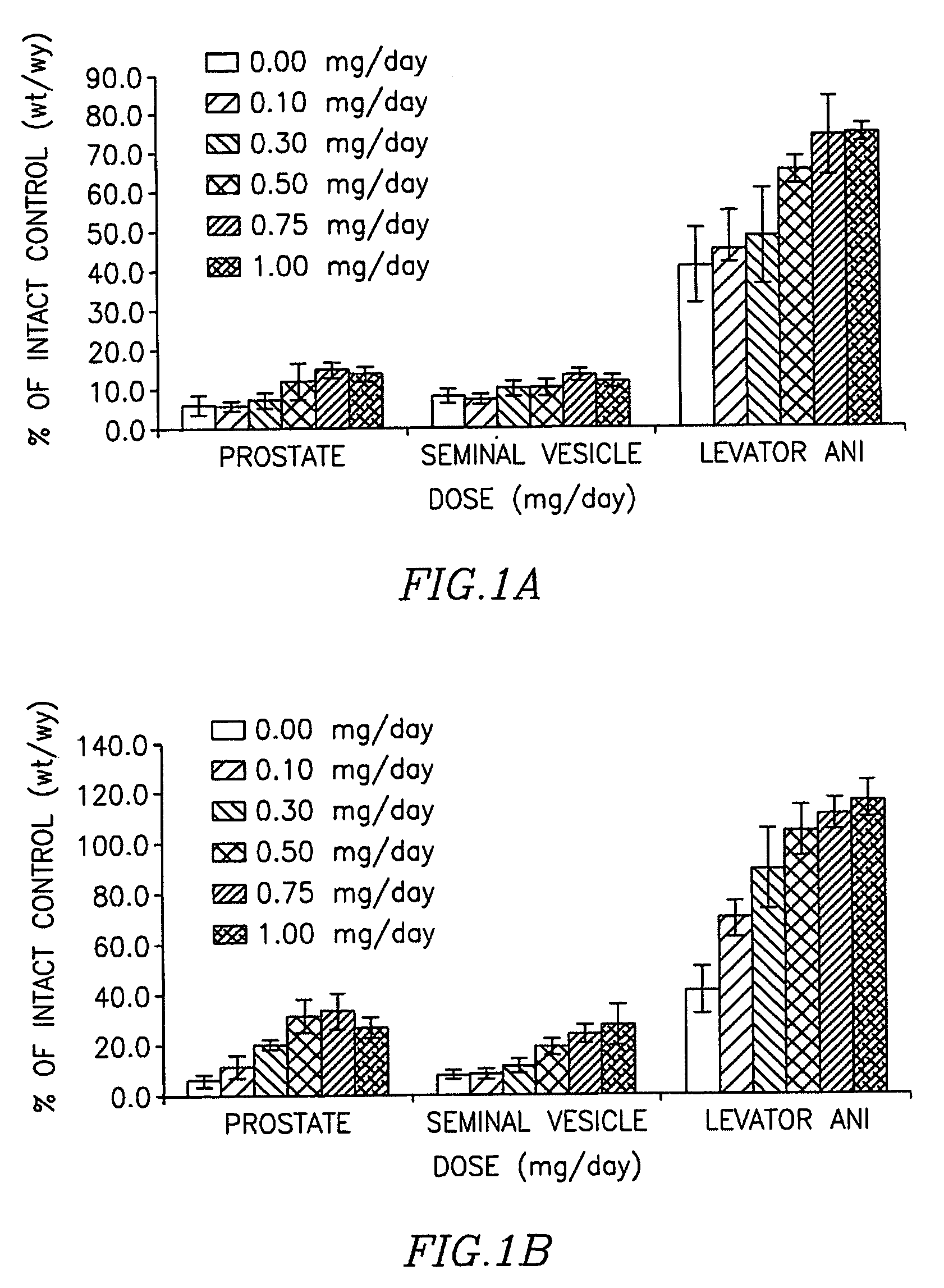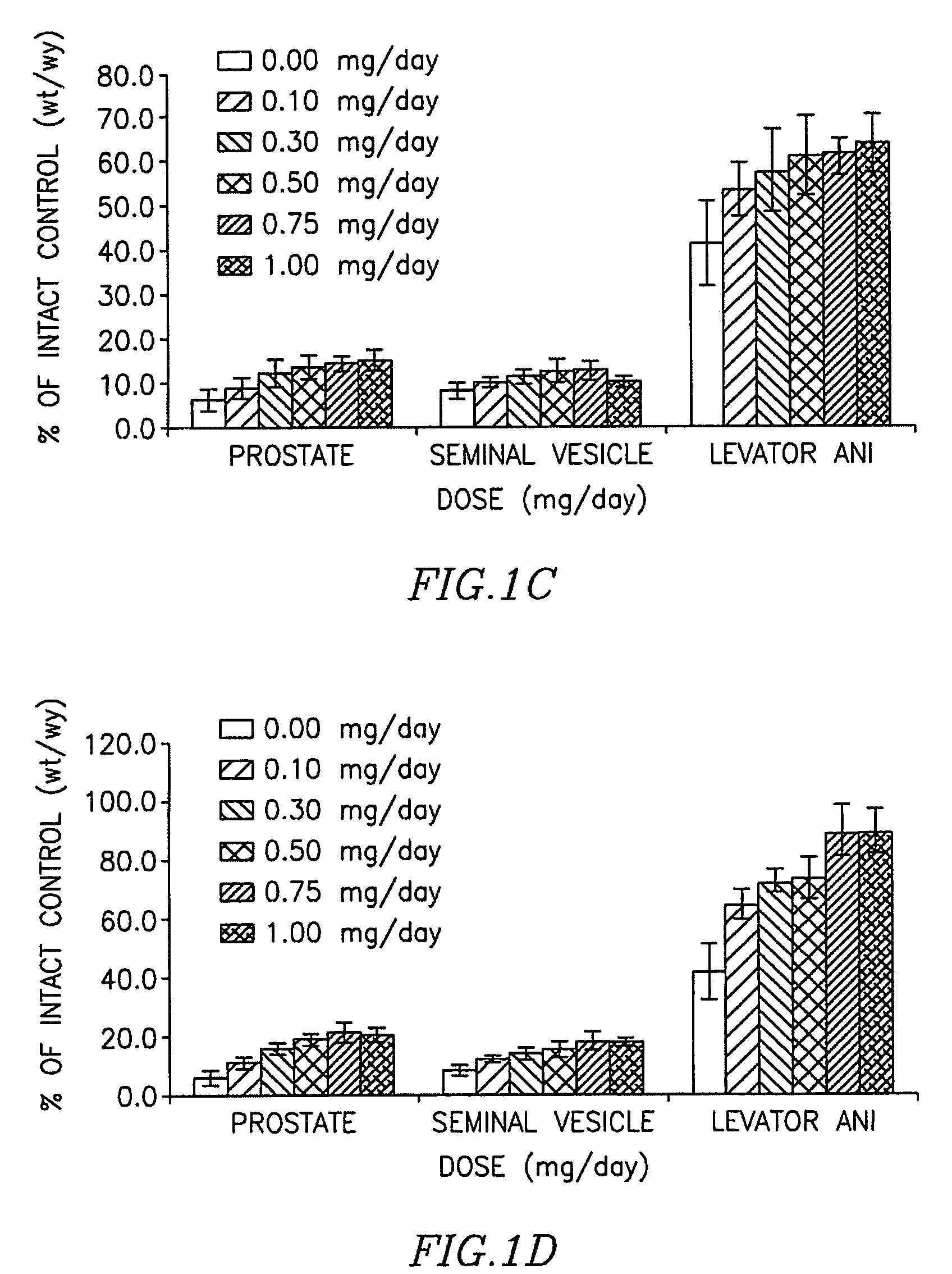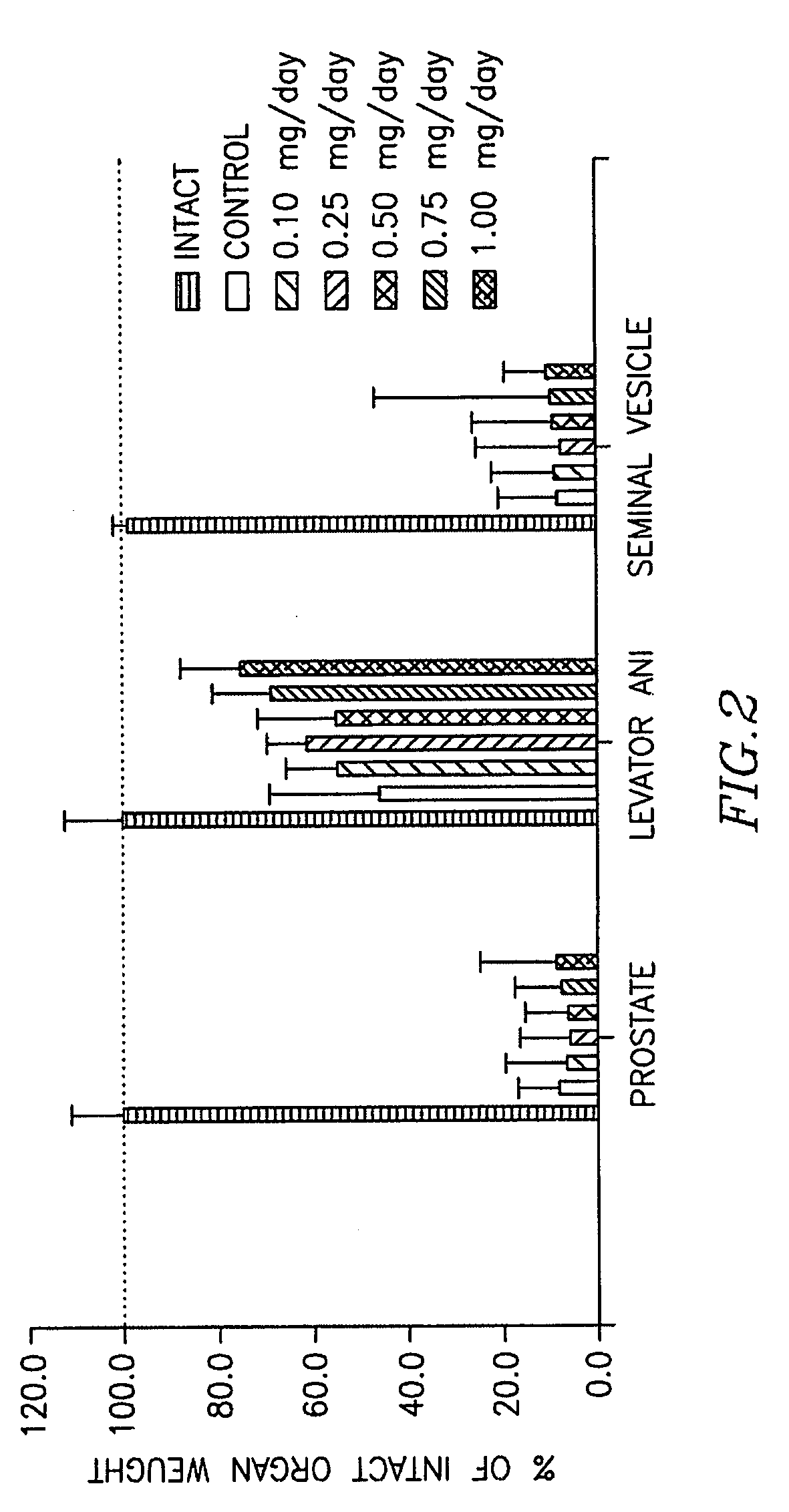Selective androgen receptor modulators and methods of use thereof
a selective androgen receptor and modulator technology, applied in the field of androgen receptor targeting agents, can solve the problems of no cure, no cure, dismal prognosis, etc., and achieve the effects of preventing dry eyes, and preventing the recurrence of prostate cancer
- Summary
- Abstract
- Description
- Claims
- Application Information
AI Technical Summary
Benefits of technology
Problems solved by technology
Method used
Image
Examples
example 1
Androgenic and Anabolic Activity of Compounds 1-4
Binding affinities of select B-ring halogenated SARMS were determined and are represented in Table 1:
TABLE 1NameStructureMWRBA(%)Ki1402.326.4 2.3 ± 0.0.0624197.68.6 ± 1.234625.312.6 ± 1.8 45102.7 23 ± 1.6
Animals. Immature male Sprague-Dawley rats, weighing 90 to 100 g, were purchased from Harlan Biosciences (Indianapolis, Ind.). The animals were maintained on a 12-hour light-dark cycle with food and water available ad libitum. The animal protocol was reviewed and approved by the Institutional Laboratory Animal Care and Use Committee.
Study Design. Rats were randomly distributed into treatment groups groups. One day prior to the start of drug treatment, animals were individually removed from the cage, weighed and anesthetized with an intraperitoneal dose of ketamine / xylazine (87 / 13 mg / kg; approximately 1 mL per kg). When appropriately anesthetized (i.e., no response to toe pinch), the animals' ears were mark...
example 2
Androgenic and Anabolic Activity of Compound 5
The binding affinitiy of select compound 5 is represented in Table 2:
TABLE 2NameStructureMWKi5382.33.3 ± 0.08
The androgenic and anabolic activities of compound 5 was examined in a castrated rat model after 14 days of administration, using the method outlined in Example 1 above.
As shown in Table 3 and in FIG. 2, compound 5 demonstrated tissue-selective pharmacological effects in castrated male rats, with higher efficacy in anabolic tissues (i.e. levator ani) as compared to androgenic tissues (i.e. prostate and seminal vesicles). Compound 5 demonstrated little pharmacologic activity in the prostate (8.7±1.39% of intact at 1.0 mg / day dose) and sminal vesicles (10.7±0.91% of intact at 1.0 mg / day dose), suggesting that it acts as a weak partial agonist in these tissues. Importantly, compound 5 demonstrates highly efficacious anabolic activity at 1.0 mg / day dose, returning the levator ani muscle to 75.2±9.51% of that observed in intact ...
example 3
Androgenic and Anabolic Activity of Compound 6
The binding affinitiy of select compound 6 is represented in Table 4:
TABLE 4NameStructureMWKi6398.83.4 ± 0.08
The androgenic and anabolic activities of compound 6 was examined in a castrated rat model after 14 days of administration, using the method outlined in Example 1 above.
As shown in FIG. 3, the weights of prostate, seminal vesicle, and levator ani muscle in castrated, vehicle-treated rats decreased significantly, due to the ablation of endogenous androgen production. Exogenous administration of testosterone propionate, an androgenic and anabolic steroid, increased the weights of prostate, seminal vesicle, and levator ani muscle in castrated rats in a dose-dependent manner. Treatment with compound 6 resulted in dose-dependent increases in prostate, seminal vesicle and levator ani muscle weights. Compared with testosterone propionate, compound 6 showed lower potency and intrinsic activity in increasing the weights of prostate ...
PUM
| Property | Measurement | Unit |
|---|---|---|
| structure | aaaaa | aaaaa |
| frequency | aaaaa | aaaaa |
| bone fragility | aaaaa | aaaaa |
Abstract
Description
Claims
Application Information
 Login to View More
Login to View More - R&D
- Intellectual Property
- Life Sciences
- Materials
- Tech Scout
- Unparalleled Data Quality
- Higher Quality Content
- 60% Fewer Hallucinations
Browse by: Latest US Patents, China's latest patents, Technical Efficacy Thesaurus, Application Domain, Technology Topic, Popular Technical Reports.
© 2025 PatSnap. All rights reserved.Legal|Privacy policy|Modern Slavery Act Transparency Statement|Sitemap|About US| Contact US: help@patsnap.com



